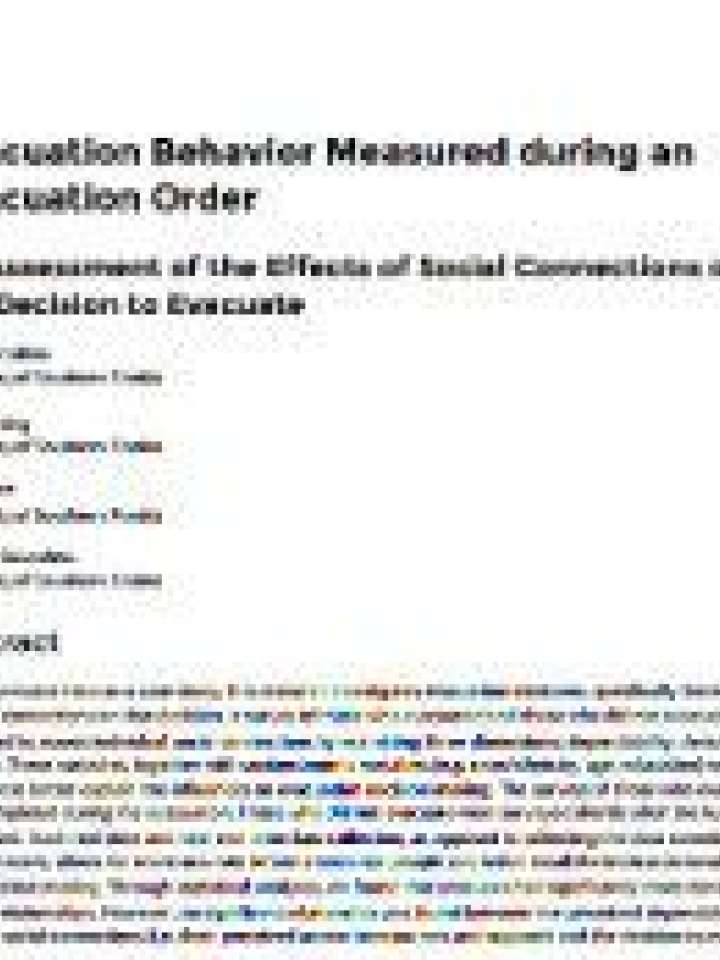Evacuation behavior measured during an evacuation order: An assessment of the effects of social connections on the decision to evacuate
Using Hurricane Irma as a case study, this research investigates evacuation decisions, specifically the influence of social connections on that decision. A survey of those who evacuated and those who did not evacuate was conducted to assess individual social connections by examining three dimensions: dependability, density, and diversity. These variables, together with socioeconomic variables (e.g. race/ethnicity, age, education) were looked at to better explain the influences on evacuation decision making.
The surveys of those who evacuated were completed during the evacuation. Those who did not evacuate were surveyed shortly after the hurricane had passed. Such real time and near real time data collection, as opposed to collecting the data sometime after the event, allows for more accurate information since people can better recall the intricacies involved in their decision making.
Through statistical analyses, this study found that evacuees had significantly more dense and diverse relationships. However, no significant relationship was found between the perceived dependability of a person’s social connections (i.e. their perceived access to resources and support) and the decision to evacuate or not. This study has important implications for adding to the knowledge base on community-based sustainable disaster preparedness and resilience.
Explore further
